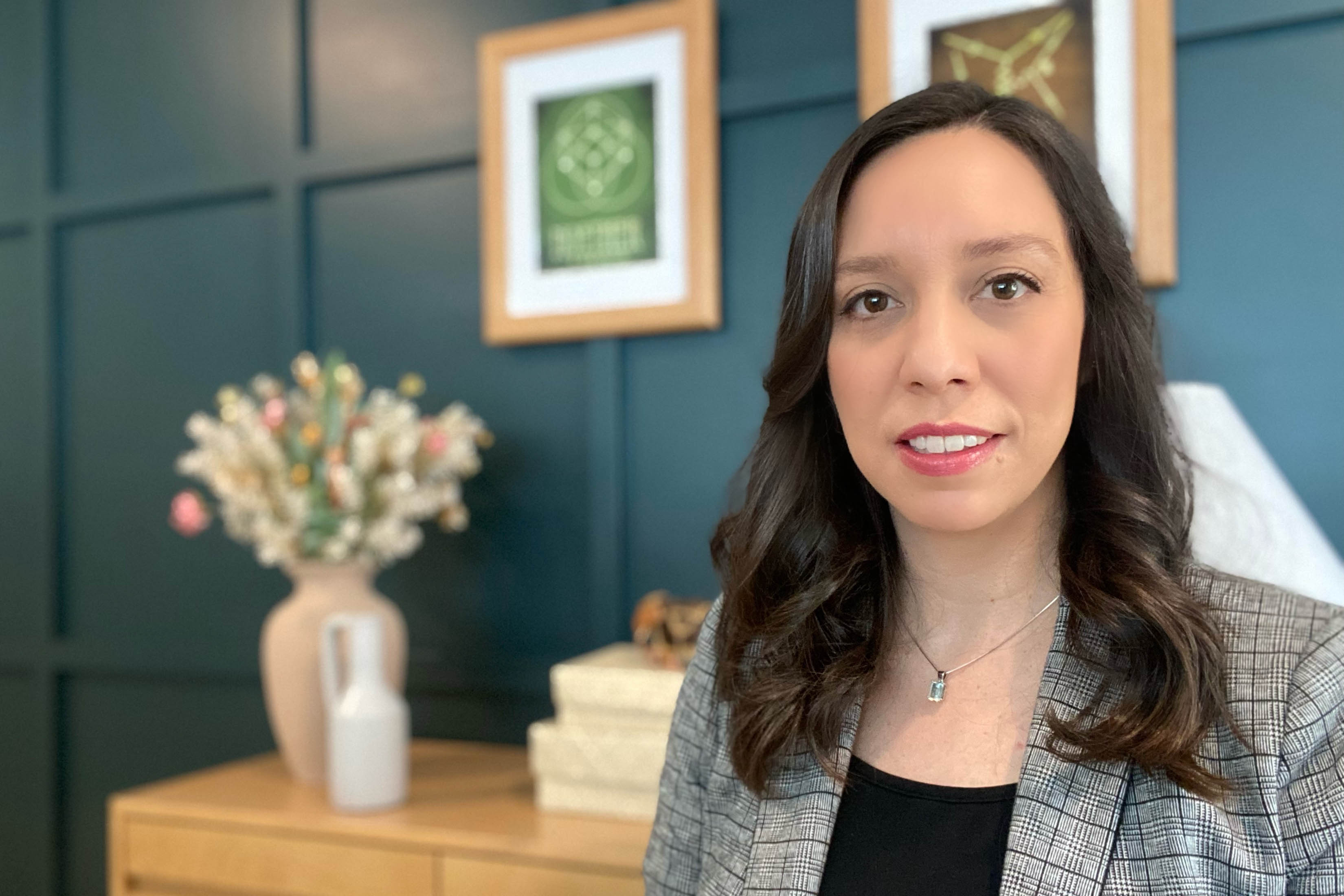Alum Digs into Data to Advance Health Justice
-
-
Slice of MIT
Filed Under
Recommended

Biases have been proven to contribute to disparities in health care for certain groups of people—leading to worse outcomes in pregnancy, cancer, and mental health for Black and Latino patients, for example. Elena Mendez-Escobar MBA ’15 is on the front lines of fighting such inequities as co-executive director of the Health Equity Accelerator at Boston Medical Center (BMC) Health System.
The goal of the accelerator, she says, is to achieve racial health equity at BMC and establish a model that other institutions can replicate. “We are focused on improving outcomes for Black and Latino patients,” says Mendez-Escobar, who is also BMC’s executive director of strategy. “I feel deeply honored to be part of a team so committed to advancing health justice.”
A native of Spain, Mendez-Escobar earned her PhD in physics from the University of Edinburgh in Scotland and then decided not to pursue an academic career in her field, string theory. “I wanted to have a more direct societal impact,” she says.
When you are at MIT, you can really pursue any passion in a low-risk way, and it can go much farther than you initially may have thought.
To explore her options, she took a job as a consultant at McKinsey & Co., where she started working in health care and found her passion in the Medicaid space. McKinsey also offered to sponsor her MBA.
Drawn to MIT by its mission of improving the world, Mendez-Escobar says she got more than she expected out of her time at the Institute. “I came to Sloan thinking I’d learn a lot about business and economics, which I did. But I got a much richer experience, including lessons in leadership and soft skills,” she says. “When you are at MIT, you can really pursue any passion in a low-risk way, and it can go much farther than you initially may have thought.”
Mendez-Escobar’s personal passion was justice. “Even though I know I am privileged in many ways, I have also experienced an uneven playing field many times in my career,” she says—as a woman working in theoretical physics and as an immigrant to the United States, for example. “I felt very passionate about changing those systems that were producing different results for people of different groups.”
At MIT, she shared her concerns about bias, and others in the community urged her to take a leadership role. That inspired her to partner with Maria Troein MBA ’15 and organize a conference exploring the topic of unconscious bias. Called Breaking the Mold, the event today lives on as the Hack for Inclusion at Sloan. “I thought I’d organize a seminar or invite a speaker, but everyone was so encouraging, and it became bigger and bigger,” she says. “The event became 10 different events.” (In addition to the conference, one other outcome of this work was a documentary, the MIT Status of Women Report, centered on the well-known 1999 report on gender inequities in the School of Science.)
After MIT, Mendez-Escobar worked on health projects at McKinsey for a few years, until BMC presented an exciting new opportunity: her current position. “This role really puts all my passions together. It’s about public health but also about addressing unfairness,” she says.
Too often, she explains, Black and Latino patients get worse care due to factors such as bias among health practitioners, a health system that is not always trustworthy, and decades of medical training that underrepresents the experiences of people of color.
To illustrate, Mendez-Escobar shows two photographs of Lyme disease rashes. On white skin, a red bulls-eye is clearly visible, but on dark skin, the rash is hardly noticeable. Since practitioners are typically trained to look for the bulls-eye, she says, Black patients can be misdiagnosed, leading to delayed treatment and worse outcomes.
To root out bias, BMC is using a data-driven approach that has already revealed some key inequities. For example, the team’s research has found two-thirds of inequities in pregnancy outcomes at the hospital can be linked to differences in the management of preeclampsia among Black versus white patients. “Essentially we found that the main way bias influences care is by contributing to delays in diagnosis or initiation of treatment for certain groups of people,” Mendez-Escobar says (see related story). “Identifying such a specific root cause for inequities provides clarity on how exactly mechanisms like bias influence health outcomes.”
Now Mendez-Escobar and her team are helping BMC better serve Black and Latino patients and reduce the impact of bias in care by instituting more guidelines, providing workers with bias training, and giving patients more information with which to make their own health care decisions. It’s an uphill battle, but Mendez-Escobar is happy to be engaged in seeking solutions to one of society’s greatest problems.
“Sometimes it feels that leaders should be purely maximizing financial returns. But if you focus on that only, you will inevitably produce inequitable results,” she says. “At BMC, we think first of what our patients need the most and then figure out how to make the financials work. This often involves work to change incentives, advocate, and be creative with the business model. Maximizing social impact is something I always knew I wanted to do, but I didn’t know it was possible. At MIT, so many people made it feel possible.”







